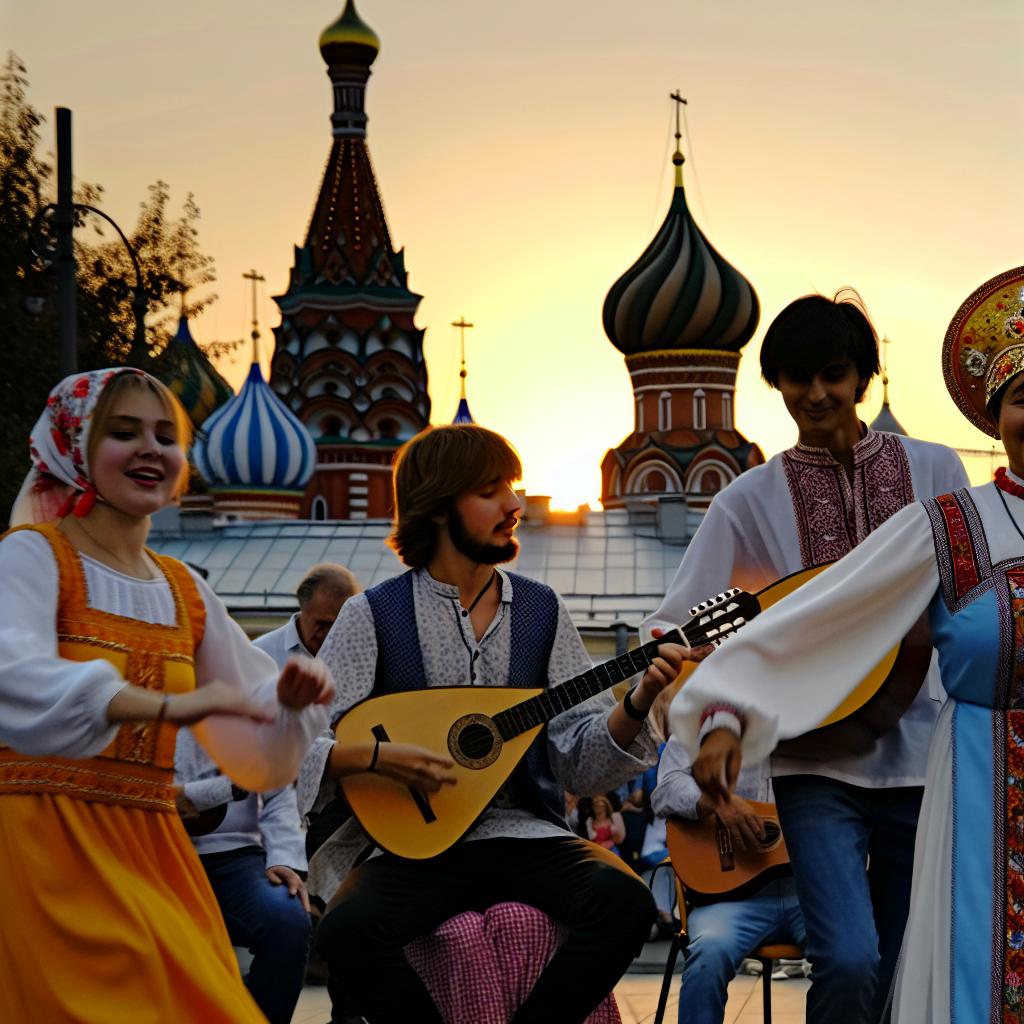Introduction to Russian Folk Traditions in Moscow
Moscow, the sprawling capital city of Russia, stands as a vibrant hub where ancient traditions and modernity seamlessly mesh. This dynamic city serves as the heart of Russian culture, offering a unique glimpse into the country’s rich historical tapestry. Home to numerous museums, theaters, and cultural festivals, Moscow embodies a strong sense of Russian folk traditions. These time-honored customs, deeply entrenched in Russia’s history, continue to thrive, attracting locals and visitors alike who seek to experience its immense cultural wealth.
Khorovod: The Traditional Russian Circle Dance
An essential element within the wide spectrum of Russian folk traditions is the captivating dance known as khorovod. This traditional dance form, which has been preserved for generations, plays a significant role in Russian culture. It is predominantly performed during various celebrations and festivities, symbolizing unity and fostering communal ties among participants.
Participants in the khorovod form a circle, joining hands and dancing harmoniously. This circling represents not only unity but also a connection with nature and tradition. The dance is often accompanied by enchanting Russian folk songs, reflecting aspects of local folklore, historical tales, and seasonal changes. In many ways, the khorovod encapsulates the vibrant spirit and communal essence of Russian culture. The availability of such traditional experiences in Moscow provides attendees with remarkable insights into the cultural heart of the nation.
Moscow’s Folk Music and Instruments
The domain of Russian music is vast and imbued with diverse influences and historical narratives. Folk music, one of the key facets of this domain, serves as a mirror reflecting the country’s storied past and cultural identity. As you journey through Moscow, you will encounter a rich array of folk songs, each narrating tales from historical conflicts to romantic ballads and pastoral idylls.
The musical journey is further enriched by the use of traditional Russian instruments. Among the most celebrated of these instruments is the balalaika. Its distinctive triangular body and three-stringed setup produce a unique sound that is emblematic of Russian folk music. Complemented by the delicate tones of the gusli, an ancient zither-like instrument with strings that are plucked gently, musicians are able to evoke profound emotions and tell compelling stories through music.
In Moscow, folk music is continually celebrated through numerous concerts and festivals dedicated to preserving this cultural heritage. Whether attending a formal event or stumbling upon a street performance, visitors and residents are met with the enchanting sounds of Russia’s musical traditions.
Traditional Crafts: Matryoshka Dolls and Khokhloma
The vibrant realm of Russian folk art is also steeped in tradition and creativity, providing cultural continuity through its many crafts. At the forefront of these crafts are Matryoshka dolls, also known as nesting dolls, which have become iconic symbols of Russian culture. Emerging in the late 19th century, these intricately painted wooden dolls capture the essence of Russian folk aesthetics. Each Matryoshka set features a series of nested figures that range in size, with each detailed doll fitting snugly inside another.
Similarly, Khokhloma painting contributes a distinctive flair to Russian folk art. Characterized by its elaborate floral and berry patterns rendered in vivid hues of red, gold, and black, Khokhloma turns ordinary wooden objects into striking works of art. Often adorning furniture and utensils, this painting style is not only visually captivating but also functional, enhancing everyday objects with beauty.
For those interested in exploring these traditional crafts in further detail, Moscow offers numerous workshops and exhibitions. These venues provide opportunities to appreciate the skill involved in crafting these pieces and offer hands-on experiences for creating your own traditional crafts.
Festivals Celebrating Russian Folk Traditions
Throughout the year, Moscow is ablaze with a host of festivals that proudly celebrate Russian folk traditions. These festivals provide vivid windows into the customs and beliefs integral to Russian culture. One such event is Maslenitsa, or Butter Week, a festive period heralding the end of winter and embracing the onset of spring. During this week, communities gather to feast on traditional pancakes, partake in energetic performances, and engage in games steeped in Russian folklore.
Equally significant is Ivan Kupala Night, a summertime festival rife with ancient rituals and celebratory bonfires. Participants engage in singing, dynamic dancing, and the daring ritual of jumping over flames. This is not just celebratory but is believed to purify and protect against malevolent spirits, showcasing the mystical elements woven throughout Russian folklore.
For those eager to delve into Moscow’s vibrant tradition-rich festival scene, the city offers a multitude of opportunities. These celebrations attest to the enduring legacy of Russia’s folk customs and provide immersive experiences for all who wish to partake in them.
Moscow, with its wealth of cultural offerings and commitment to preserving tradition, stands as a bastion of Russian folk customs. Creative arts, music, dance, and festivals collectively portray the unique and timeless identity of this nation. For those seeking to experience these enduring traditions first-hand, the city remains an inviting and dynamic venue, rich with opportunities to celebrate Russian culture in its many forms.

